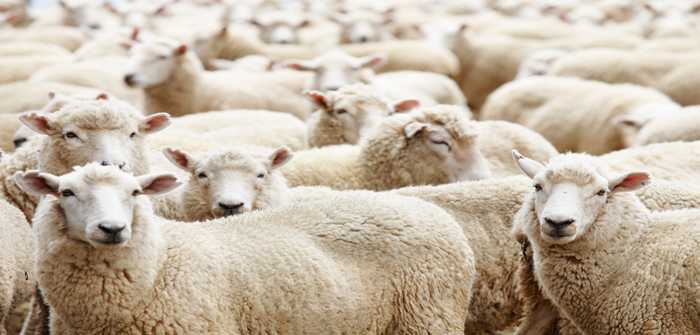The National Sheep Association (NSA) has welcomed the unveiling of the next two strands of the Environmental Land Management Scheme (ELMS) providing more guidance to farmers in England.
Following quickly on the heels of details of the Sustainable Farming Scheme (SFI) released in December, the two new schemes, Local Nature Recovery and Landscape Recovery, focus on creating and restoring natural habitats within the farmed environment.
NSA said that Local Nature Recovery, in particular, will be highly relevant for farmers as schemes progress.
NSA chief executive Phil Stocker said: “While NSA is aware of the concern amongst many farmers about the move away from the well-known Basic Payment Scheme (BPS), we are also aware we are on a necessary journey to move to more environmentally focussed farming.
“We believe that sheep farming is and can be a core part of future farming approaches. The best thing we can do now is to make sure the massive changes we are seeing do work in practice for the farmers who choose to participate.”
At the same time, Mr Stocker said, NSA is doing all it can to make sure the productivity and profitability aspects of sheep production itself mean that sheep farmers have a real choice in the future.
“The first steps of SFI will have been seen, particularly in rough and moorland grazing situations, as underwhelming but that is the nature of transition alongside BPS declining,” he said. “Defra’s announcement on the new schemes gives a bit more confidence about the ways forward.
“What we must do now is ensure that Local Nature Recovery in particular is practical and relevant, and properly rewarding for sheep farms. The objective is to support nature recovery alongside productive farming and there are two clear ways sheep farmers can do this – by managing their flocks to provide for nature within the grazed environment, and also by creating specific nature habitats alongside the farmed area.”
Mr Stocker said that, in the immediate term, NSA broadly welcomes the decision that Countryside Stewardship has not only been simplified but that payment rates will increase by an average of 30%.
“That it is clearly being encouraged as a bridge to Local Nature Recovery,” he said. “It is disappointing that capital costs within Countryside Stewardship are not increasing, with increased costs having to be absorbed within scheme revenue values.
“Relating to Landscape Recovery, we know some NSA members may choose to be part, but land use change is much more challenging and will often conflict with farming enterprises. NSA is concerned about the impact of this scheme on tenants and sheep farmers with grazing agreements – there is a serious chance of people’s livelihoods being challenged by landowners who want to take their land in different directions.”
Mr Stocker said it’s important to note that overall, these schemes are voluntary.
“We would do well to don everything we can to make sure our farming enterprises are as productive and profitable as they can be because that will give farmers a real choice as to their future and it will mean that payment rates will need to be sufficient to encourage farmers to take part,” he said.
“This way we get quality productivity and hopefully a reasonable value put on quality environmental outcomes.”


